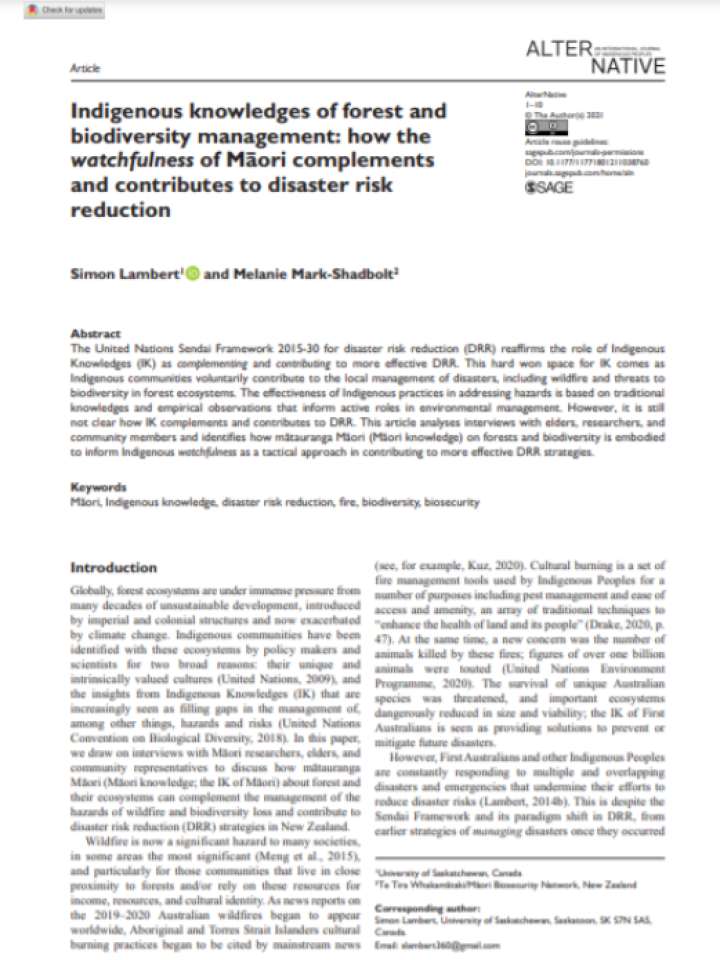Indigenous knowledges of forest and biodiversity management: how the watchfulness of Māori complements and contributes to disaster risk reduction
This article brings focus to the significance of Indigenous Knowledge (IK) in contributing to more effective disaster risk reduction (DRR) as affirmed by the United Nations Sendai Framework 2015-30 for disaster risk reduction. The study analyzes interviews with elders, researchers, and community members and identifies how mātauranga Māori (Māori knowledge) on forests and biodiversity is embodied to inform Indigenous watchfulness as a tactical approach in contributing to more effective DRR strategies. This hard won space for IK comes as Indigenous communities voluntarily contribute to the local management of disasters, including wildfire and threats to biodiversity in forest ecosystems, particularly communities that live in close proximity to them. The effectiveness of Indigenous practices in addressing hazards is based on traditional knowledges and empirical observations that inform active roles in environmental management. However, it is still not clear how IK complements and contributes to DRR.
The study finds that the physical presence of knowledge holders and practitioners on the ground—their watchfulness—is fundamental to how IK continues to inform DRR. Indigenous communities will interpret their vulnerabilities as risks to their cultures in addition to their physical, financial, and social wellbeings. In addition, the analyses found that Indigenous Knowledge on forest an biodiversity management has experienced a resurgence within DRR discourse. Such knowledges are now seen by policy makers, scientists, and various non-Indigenous communities as insightful and valuable in providing scale-dependent, often location-specific, information on more effective disaster risk reduction. For IK to truly complement and contribute to disaster risk reduction, Indigenous rights and cultural values must first be acknowledged and then actively supported by those who wish to understand, and benefit from them.
Explore further
